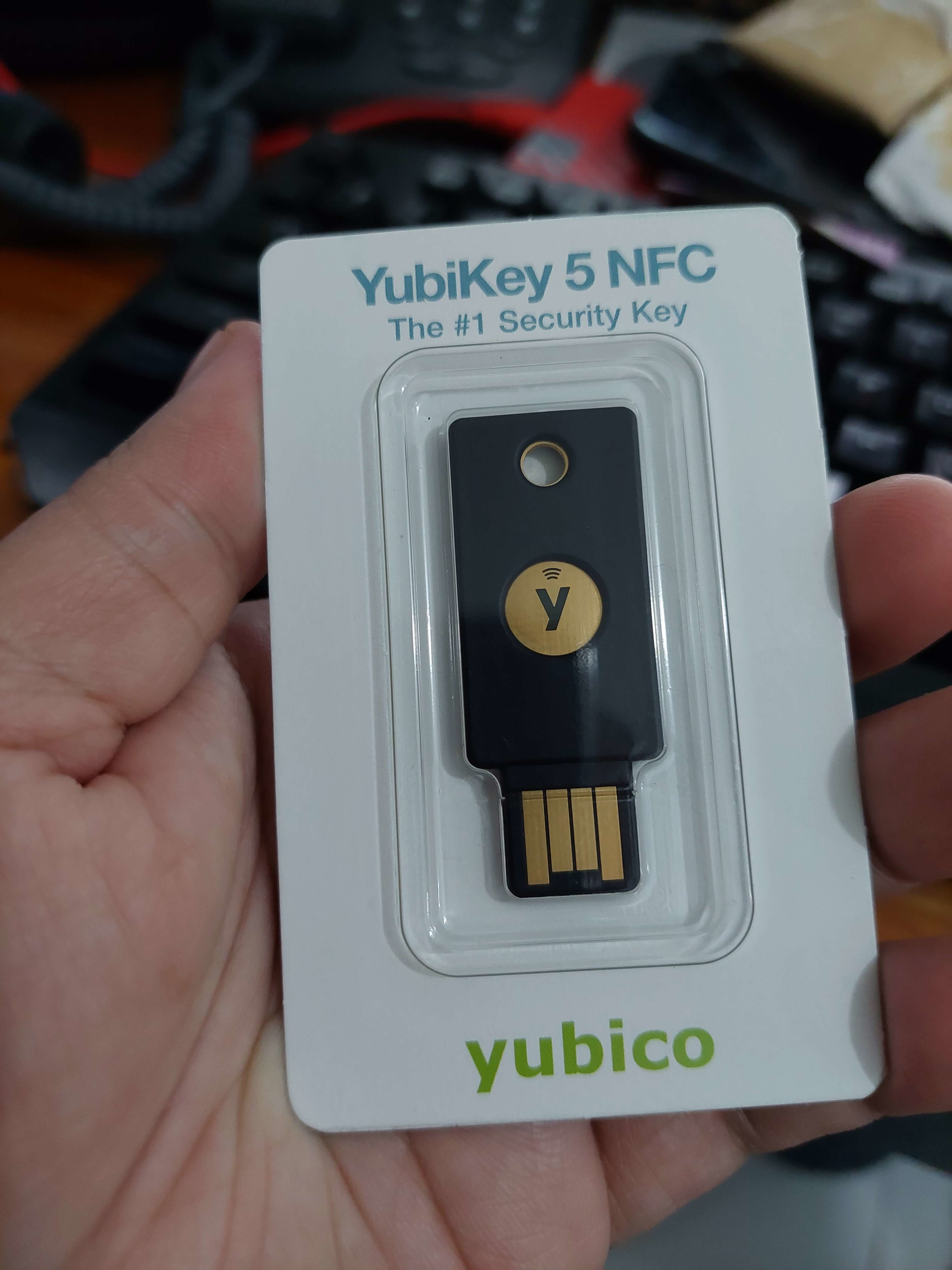 This is my YubiKey. Photo taken March 2, 2022.
This is my YubiKey. Photo taken March 2, 2022.
As a freelance software developer, I always prided myself on maintaining robust security measures. I had enrolled in Google’s Advanced Protection Program, touted as Google’s strongest security to safeguard users with high visibility and sensitive information. Little did I know that this very protection would become a significant hurdle when I lost both of my YubiKeys during a recent trip.
Google’s Advanced Protection Program is designed to defend against targeted online attacks. It prevents unauthorized access to accounts by requiring a passkey or a security key to verify identity and sign in. This program also provides extra protection from harmful downloads and keeps personal information secure by limiting access to Google apps and verified third-party apps.

My setup was meticulous. I had separate Gmail accounts for personal and work use. My work Gmail was only accessible from my Linux-based laptop, with the browser set to clear all cookies upon shutdown. I used two YubiKeys with NFC capabilities as my security keys. This compartmentalization seemed foolproof until both keys were lost.
The impact was immediate and severe. Without my YubiKeys, I was locked out of my Google accounts. Gmail, Google Drive, and other essential services became inaccessible. The very features that made Advanced Protection so secure – like blocking sign-ins without the security key even if the username and password are known – now worked against me.
For my personal account, the situation was bad enough. But for my work account, it was catastrophic. I couldn’t access my client list, professional communications, or project details. My entire freelance business ground to a halt. The separation of accounts, which I thought was a security measure, now meant I had no way to contact clients or access shared documents and code repositories.
The recovery process has been a nightmare. Google’s stringent verification process, designed to protect against unauthorized access, now stands as a formidable barrier. Each recovery attempt feels like a battle against time and bureaucracy.
This ordeal has taught me several crucial lessons:
- Always have a backup security key, stored in a separate, secure location.
- Keep recovery codes in a safe, accessible place.
- Maintain an offline client list and contact information.
- Regularly audit and update security measures.
- Be mindful of physical security for digital devices.
- Consider a balance between cloud-based and hardware security options.
- Document your digital life securely.
- Develop a business continuity plan for digital access disruptions.
- Establish secondary client communication protocols.
- Find a balance between strict security measures and accessibility, especially when traveling.
While Google’s Advanced Protection Program offers unparalleled security against targeted attacks, it also requires careful management and planning for potential loss scenarios. It’s a stark reminder that in our digital age, the tools that protect us can also become our greatest vulnerabilities if not handled with foresight.
To fellow freelancers and digital professionals: secure your digital life, but always have a contingency plan. The road to recovery is challenging, but not impossible. Stay persistent, and you will regain control of your digital realm and professional life.
This experience underscores the importance of understanding the full implications of advanced security measures. While they offer robust protection, they also demand a higher level of responsibility and preparedness from the user. As we continue to navigate the complex landscape of digital security, finding the right balance between protection and accessibility remains an ongoing challenge.